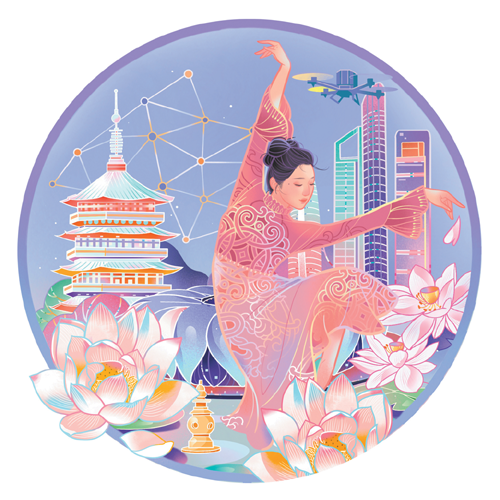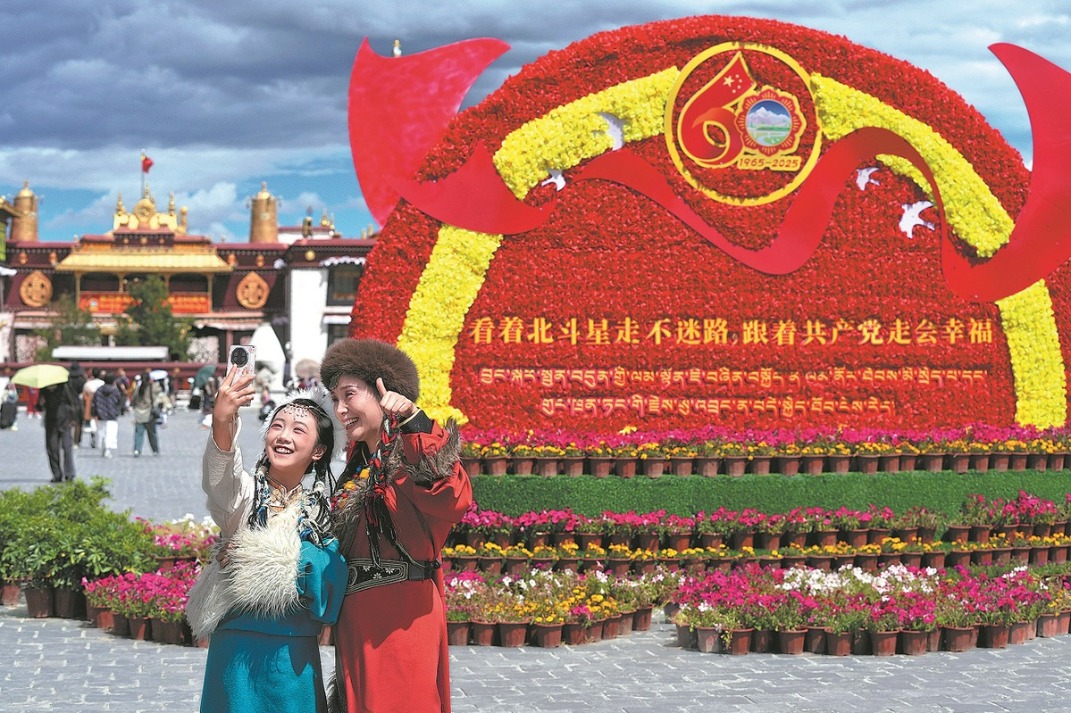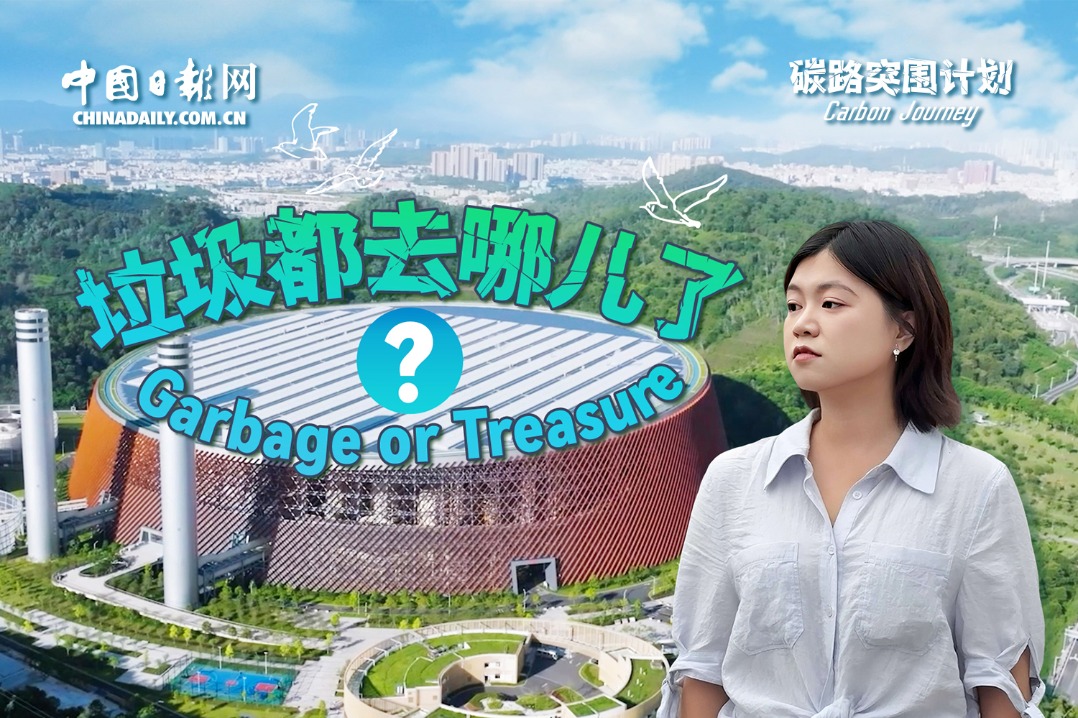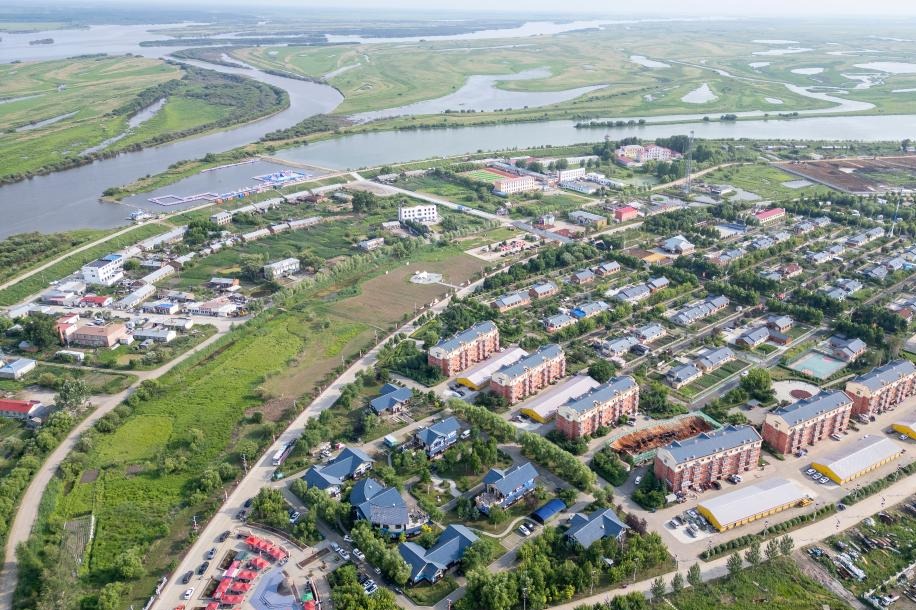Glimpses of Chinese path to modernization


Having returned just a few days ago from a packed tour of Zhejiang province as a member of a local Portuguese- and English-language media delegation, I feel that I visited both Shangri-La and Silicon Valley at the same time.
The four-day trip convinced me that the province in the Yangtze River Delta region can be aptly described by just three adjectives: ancient, ecological and futuristic.
It was my first visit to Zhejiang in more than two decades. It reconfirmed my view that the province of 66 million people(about the population size of France) is not only a treasure trove of historic economic achievements, including being among the first regions in China to cultivate rice and produce silk. It is also a bucolic place of natural beauty, as well as groundbreaking innovations throughout history.
Zhejiang's innovation and industrial drive began more than 5,000 years ago. Aside from cultivating rice and green tea, developing industrial-scale sericulture, mastering the art of silk-making, manufacturing celadon(pale green) porcelain, and building ocean-going vessels, the province also perfected hydraulic engineering, as part of the Beijing-Hangzhou Grand Canal project.
Its coastline, fertile land and mercantile culture have fostered a productive blend of practical inventions and global trade.
Our trip included a visit to the site of the annual World Internet Conference in the picturesque ancient town of Wuzhen. Initiated by the Cyberspace Administration of China in 2014, the conference held its second summit in 2015, which was attended by President Xi Jinping.
Holding a future-oriented internet conference in a historical town provides its participants with the right ambience, while helping them learn lessons from the past to avoid repeating past errors.
For me, the visit to the Memorial Hall of the New Fourth Army was a highlight of the trip. The tour guide gave us a detailed presentation of the history of the place and the New Fourth Army's fight against the fascist Japanese invaders, and the heroic deeds of the peasants and other people in Zhejiang and Jiangsu who in April 1942 rescued 64 of the 75 American Doolittle Raiders who landed in China after bombing Japan in response to Japan's devastating attack on Pearl Harbor in Hawaii. The Japanese occupiers' response was brutal, to say the least, because they massacred an estimated 250,000 Chinese civilians during a three-month assault in Zhejiang and Jiangxi provinces starting in May 1942.
The Doolittle raiders' case should be remembered as a great example of cooperation and friendship between the Chinese and American peoples. Sino-US amity is one of the pillars of peaceful international relations. This pillar should never be allowed to decay, irrespective of the systemic differences between the two sides.
We also visited Yucun village, one of the world's greatest ecological restoration success stories.
China has become one of the most ecologically conscious countries. During an inspection tour of Yucun village, Anji county, in August 2005, Xi, then secretary of the Zhejiang provincial committee of the Communist Party of China, for the first time put forward the concept of "lucid waters and lush mountains are invaluable assets", which has become the core of his thought on ecological civilization.
Over the past two decades, Yucun's erstwhile heavily polluting cement factory has been transformed into a plantation and a large piece of land turned into rapeseed fields and lotus ponds. New forms of business, such as homestays and campsites, as well as cultural and industrial parks, have been launched there.
Yucun's ecological restoration has been a resounding success. In fact, the pastoral village has become one of the most popular destinations for eco-tourists and startup founders.
During his posting in Zhejiang, Xi also put forward his pivotal "Double Eight Strategy" based on eight strengths. Accordingly, the province has been implementing the eight measures to take further advantage of these strengths.
As a symbol of China's high-quality development, Zhejiang has been making efforts to promote common prosperity.
In Hangzhou, our delegation visited both the "Hangzhou Future Sci-Tech City Urban Exhibition Hall" and the "Hangzhou International Expo Center", reinforcing our impression that the city has become one of the world's top AI hubs, being home, among others, to Alibaba and the city's "Six Little Dragons", a cluster of tech start-ups, Game Science, DeepSeek, Unitree Robotics, DEEP Robotics, BrainCo and Manycore Tech.
China is one of the world's leading AI and robotics developing countries, alongside the United States, Germany and Japan. We were all awestruck while watching, for instance, the AI and robotics presentations at the two centers.
Hangzhou is much more than just a leading AI hub. It is also one of the world's oldest major trading cities with a history of some 2,000 years. It also boasts three UNESCO World Heritage Sites (the West Lake Cultural Landscape, the Grand Canal and the Archaeological Ruins of Liangzhu city).
We also had the privilege of visiting the venue of the 2016 G20 Hangzhou Summit, which produced a 48-article Leaders' Communique. Article 28 of the communique unequivocally states:"We reiterate our opposition to protectionism on trade and investment in all its forms". We hope that most of the countries that signed the communique continue to remain opposed to protectionism on "trade and investment in all its forms". It is one G20 member state's protectionist policies that have triggered the current tariff turmoil.
Lying on the 30th parallel north(latitude), Liangzhu is a city whose culture was stratified, because jade, silk, ivory and lacquer artifacts have been found exclusively in elites' burial sites, while pottery was more commonly found in the burial plots of poorer individuals.
Zhejiang is a cradle of both human civilization and futuristic innovations, including AI, robotics, biotechnology and renewable energy. These technologies are poised to reshape industries and blur the line between the physical and digital worlds through emerging technologies, augmented reality(AR) being just one.
On the trip, our delegation saw a preview of the role China will play on the world stage, politically, economically, technologically, scientifically and culturally.
The author is director of the Macau Post Daily.
The views don't necessarily represent those of China Daily.
If you have a specific expertise, or would like to share your thought about our stories, then send us your writings at opinion@chinadaily.com.cn, and comment@chinadaily.com.cn.

































